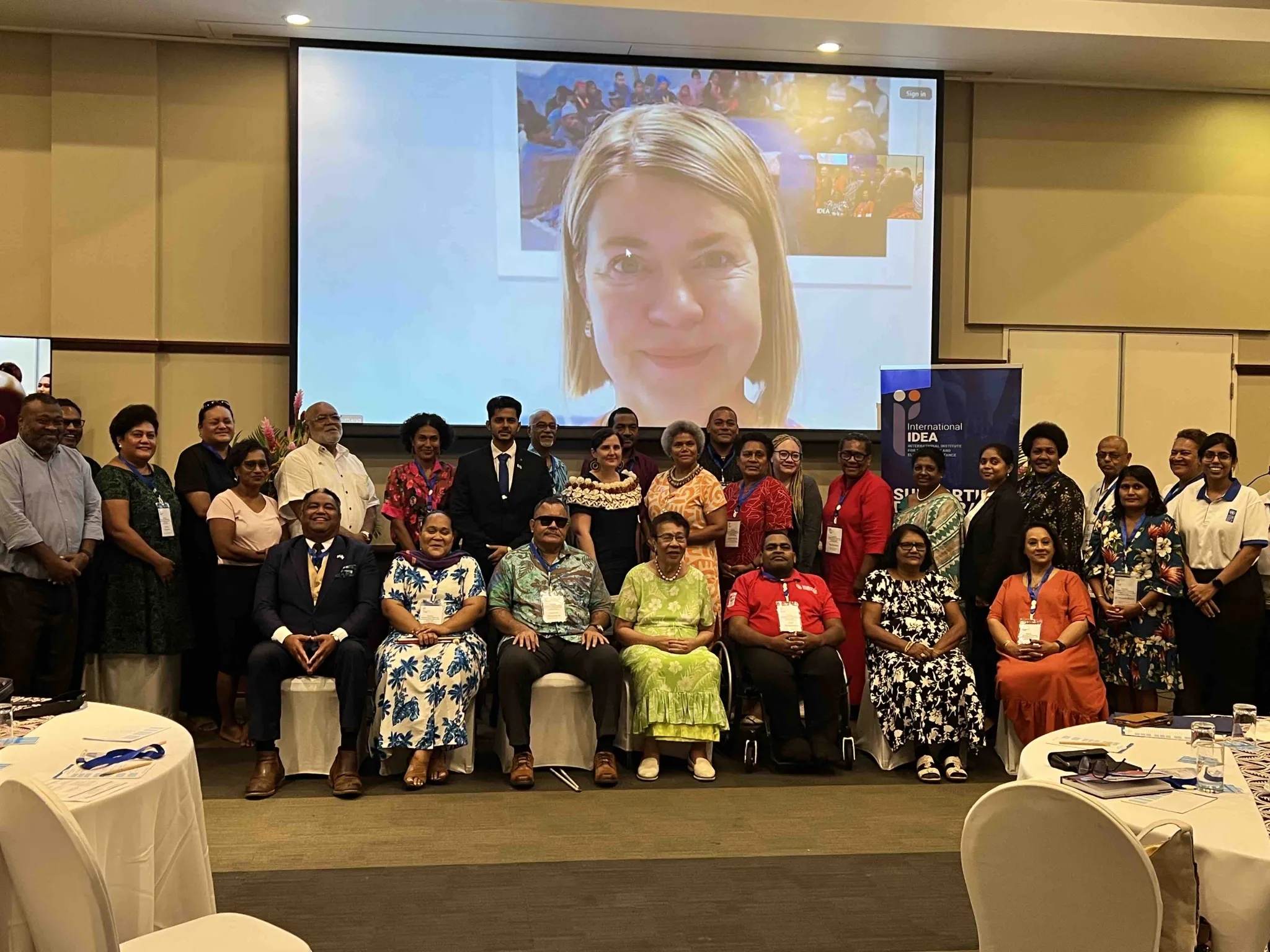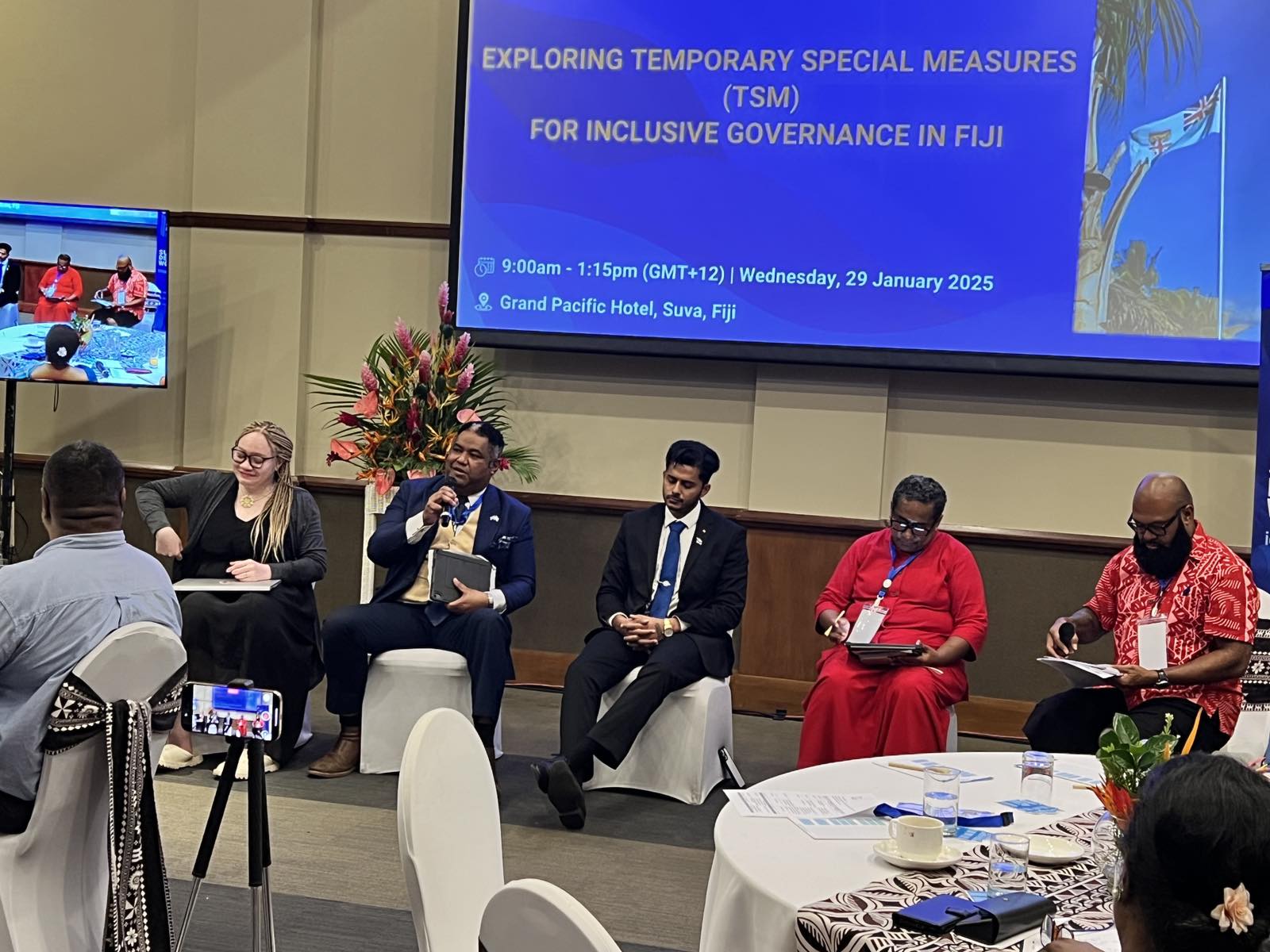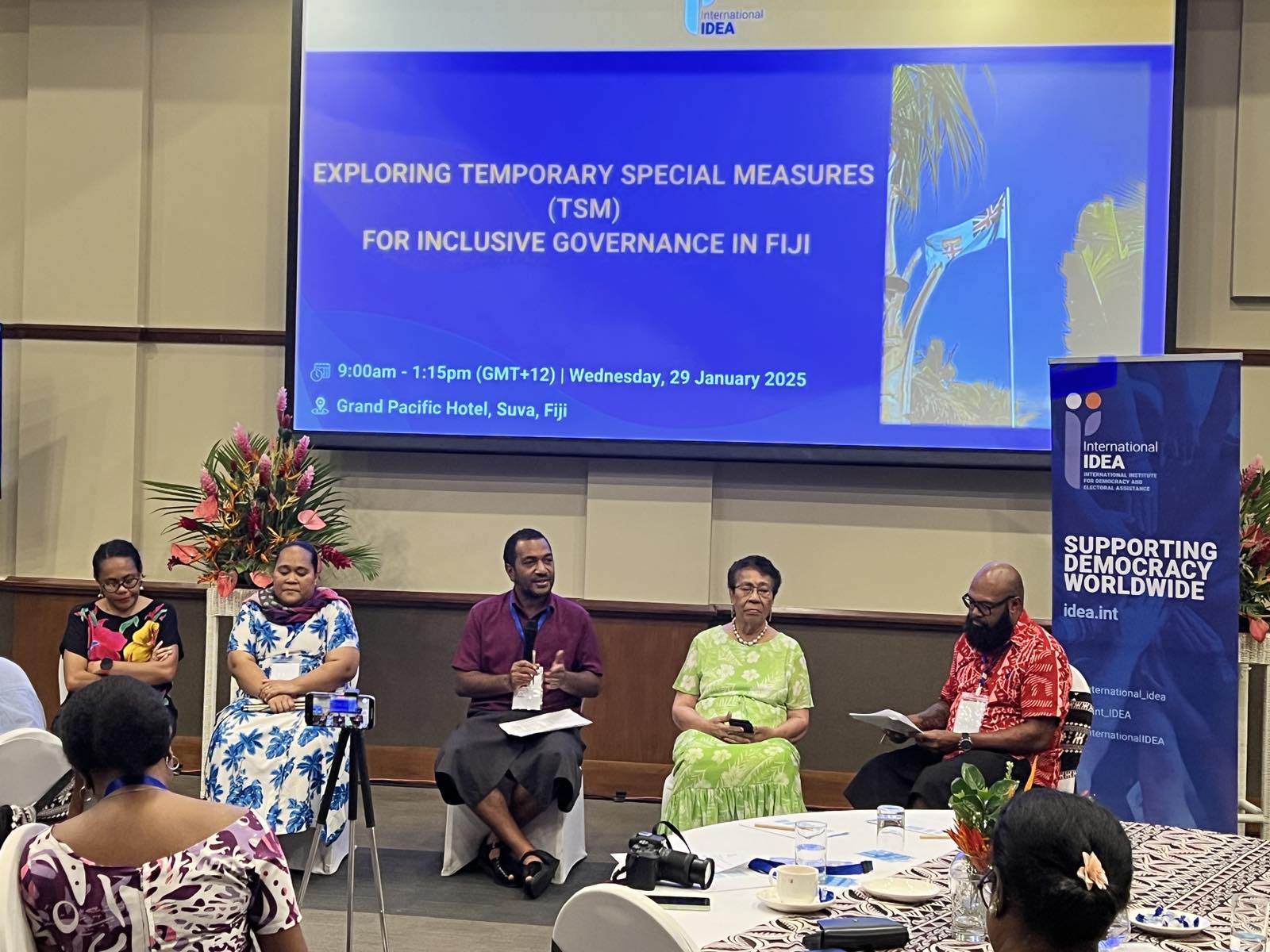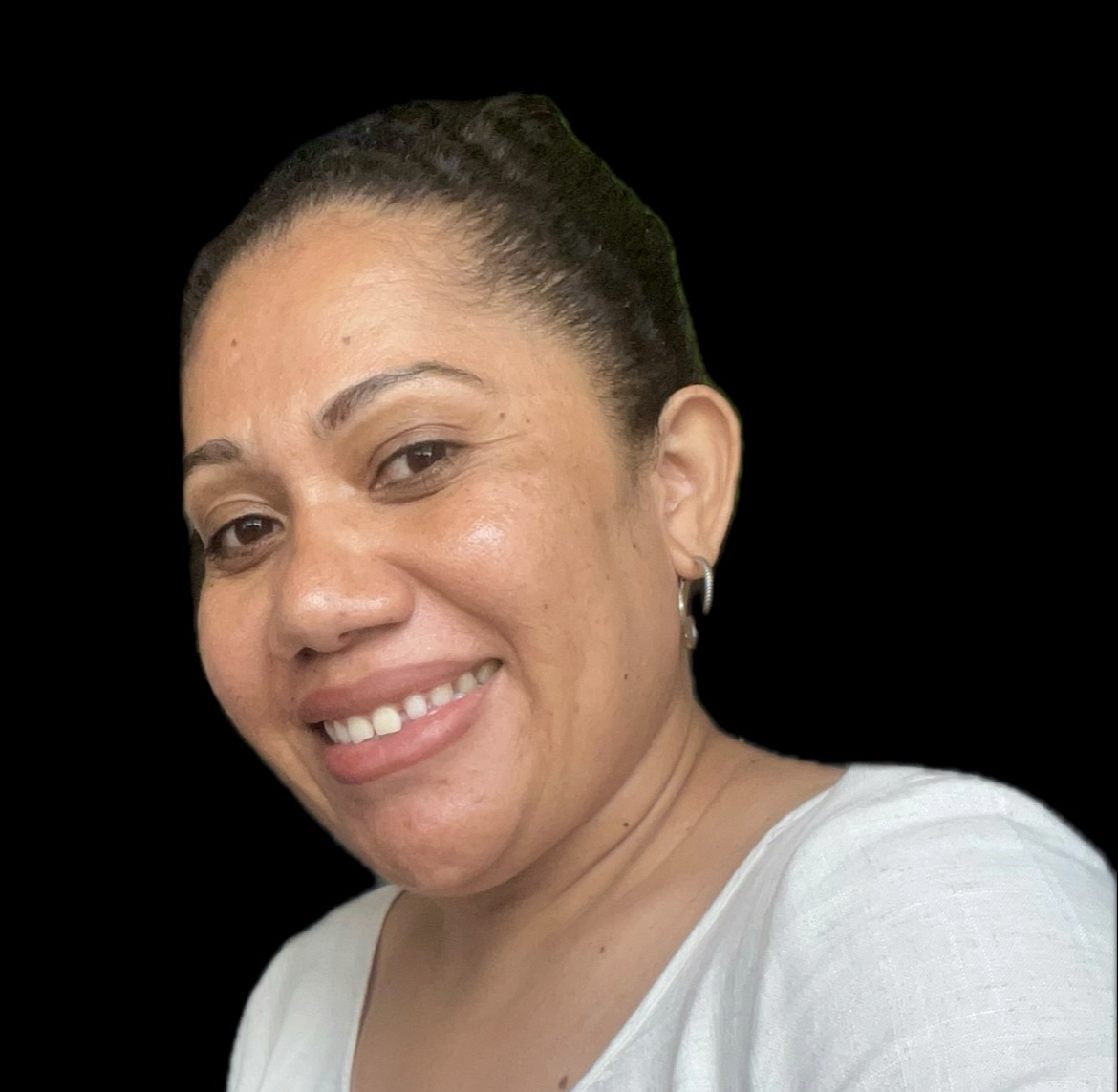
The event featured insights from Leena Rikkilä Tamang, Regional Director for Asia and the Pacific at International IDEA; Honorable Lenora Qereqeretabua, Assistant Minister for Foreign Affairs and Deputy Speaker of Parliament; and Dr Kerryn Baker, a Fellow at the Department of Pacific Affairs at the Australian National University, who provided a research-based perspective on women's political participation in the Pacific.
Leena opened the discussion by giving examples of special measures.
"Gender quotas come in different forms, as do the political and electoral systems in which they are implemented,” she said.
She highlighted that TSMs, such as gender quotas, have been effective in advancing gender equality globally, but their success depends on the political, cultural, and institutional context of each country. Rikkilä Tamang emphasised the importance of evidence-based approaches, ensuring that any measures taken are tailored to Fiji’s unique needs.
Honorable Lenora Qereqeretabua stressed the urgency of the moment, declaring: "The time to act is now. Our parliaments, our political structures, and our societies will be stronger, more just, and more effective when they reflect the true diversity of the people they serve."
She called for immediate action to ensure that women and marginalized groups have a seat at the decision-making table, stressing that TSMs are a vital tool for leveling the playing field and achieving gender parity.
Dr. Baker provided a keynote address that set the scene with an analysis of women's political participation. She noted that as of January 2025, women hold only 8% of parliamentary seats in the Pacific, compared to 27% globally, underscoring a significant gap in representation. While various approaches exist to address this disparity, including Temporary Special Measures (TSMs), discussions continue on the most effective strategies for ensuring greater inclusivity in political leadership.
Laisa Bulatale, Programme Director at Fiji Women’s Rights Movement (FWRM), saying, "Affirmative action is essential to address historic inequalities, but it must go beyond tokenism. We need to ensure it creates real opportunities for women to participate fully in politics."
Fay Volatabu, Executive Director of femLINK Pacific, also shared a critical perspective:
"Temporary Special Measures (TSMs) are important, but they must address the cultural influences that shape leadership perceptions. Women in politics represent multifaceted interests, not just gender, and we must also tackle issues like technology-facilitated gender-based violence to ensure their full participation."
The forum was a space for open dialogue, bringing together political parties, civil society organizations, faith-based groups, academia, and development agencies to discuss the potential of TSMs in Fiji. The discussions underscored the importance of collaboration and informed decision-making in the pursuit of inclusive governance.
As we move forward, the insights from this forum will guide efforts to promote gender equality and inclusive representation in Fiji. The call to action is clear: the time to act is now. Let’s work together to create a future where every voice is heard and every person has an equal opportunity to shape the policies that affect their lives.






